- ISIS jihadists in northern Syria and Iraq are not only terrorizing the native population; now, they are burning the marijuana crops Syrian farmers produce in order to eke out a living in a country devastated by war.
- The members of the Islamic State argue that cannabis is harmful, and must be destroyed. But the growers' resistance is staunch.
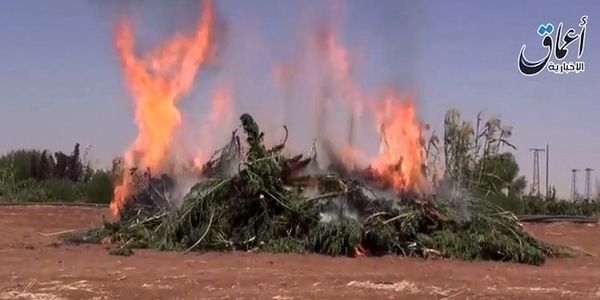
The growing of marijuana plants in Syria has become one of the few ways to survive for those who refuse to abandon their homes in spite of the crude civil war ravaging the country. Their product is not the best on the market; yet, according to the latest data coming out of the country, many growers have been cultivating marijuana for months in a desperate attempt to obtain enough income to buy the scant food that is arriving from abroad.
But now a much more worrisome threat plagues those who live, not only in northern Syria, but also Iraq and other bordering countries like Lebanon. The menace: the Islamic State (better known internationally as ISIS), which has taken control of some areas in Iraq and Syria and established its own peculiar caliphate.
The members of ISIS not only kidnap, torture, terrorize and murder all those who do not act in accordance with their ideas, but they also lay waste to everything they find "inappropriate." A few weeks ago the group posted on YouTube (they are masters at the use of the Internet and social networks) a video featuring various members showing a large field of marijuana, purportedly located in Ijtirein (north of Aleppo) and hidden among different tomato plantations.
While two of the jihadists tour the land others cut, gather and pile up the plants for their subsequent burning. The message is clear: one should not consume marijuana, because it is "a drug" and bad for one's health. As such, it is haram (sin) and violates the strictest interpretation of the Sharia. Militants of the Islamic State consider marijuana "a product contrary to Islamic law."
According to ISIS members, the organization discovered the crops after capturing some members of the Free Syrian Army (opponents of the current government), although the proprietor allegedly fled to the border with Turkey. Apparently, it is not the only crop the jihadists have burned or intend to burn.
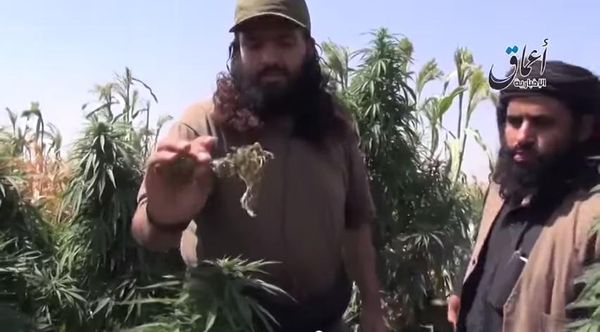
Many farmers harmed by this onslaught
These crops have become one of the few sources of funding for those opposing ISIS and the government, who hawk it on the black market. In Idlib, a city very close to Aleppo, a young 31-year-old grower said that they don't have many more work options. "We don't have any land, there's no trade, there's nothing. If it were not for this, we would starve," he stated.
Fearful of the country's most extremist factions, Syrian farmers tend to pay rebel fighters to protect their fields of marijuana and ensure that their product gets safely across the border for its subsequent sale, mainly in Turkey. Most of the towns in the province of Idlib are surviving off the spoils of smuggling between Syria and Turkey. Caring for crops and keeping them out of the hands of the Islamic State, however, is much more daunting.
Lebanese farmers will defend their plantations
Neighbouring Lebanon is witnessing a boom in the cultivation of marijuana, even though it is illegal. A large portion comes from the impoverished but fertile Bekaa Valley, 50 km from the Syrian border, the area's profits soaring in the last two years. The chaos in the neighbouring country seems to have been a boon for the farmers, as the security forces which formerly worked to eradicate the crops are now busy securing the border.
However, as the Islamic State's fighters press closer to the border, marijuana growers, who in the past had taken up weapons against their own security forces, state they will do so again to fend off those who are even more committed to destroying their crops.
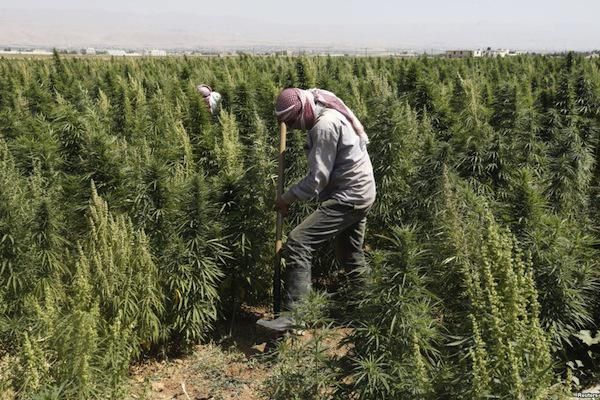
Even the Shiíte group Hezbollah is reluctant to confront these clans, as drug control takes a back seat to fighting the spread of the Syrian conflict; they could also use this paramilitary force in the event of a national emergency. These well-armed clans, which have engaged in battles both between themselves and against the Lebanese army, are now committed to using their weapons against any ISIS fighters who enter Lebanon from Syria with plans to burn even one of their plants.
Marijuana and tobacco, no; but amphetamines...yes
It's not the first time that members of ISIS have committed such an act in Syria against substances that they consider impure. In the early summer, they burned 75 million Syrian pounds (1.5 million packets) in several cities around the country, in an effort to prohibit tobacco smoking too.
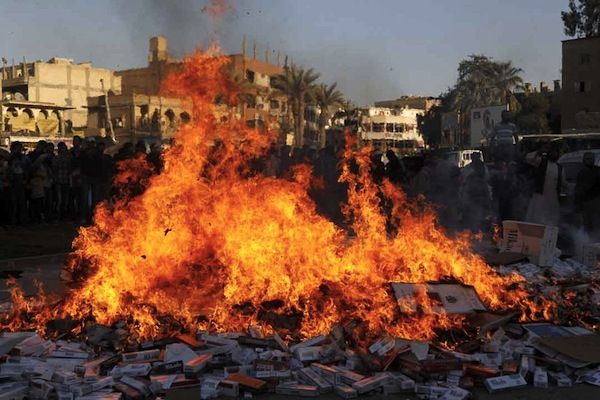
And yet, the same cannot be said with regards to Captagon (Fenetylline), an amphetamine widely produced in Syria, which induces a state of euphoria and insensitivity to pain. Captagon is commonly consumed by the jihadists, to render themselves insensitive to fatigue, sleep and hunger, making them like japanese kamikazes.
The members of ISIS, who does not consider this substance haram, as they deem it useful for their own benefit, are known to traffic in this type of drug, both for consumption and financing (last August Syrian Army intercepted six million pills of Captagon at the border), so their message with respect to marijuana is incongruous.
In any case, they communicate by constantly invoking Islam to intimidate the people and force them to abandon their cannabis crops. In this way, they are doing everything possible to taint the plant's image. It is sad, but in Syria marijuana has become just one more victim of the brutal wartime economy.
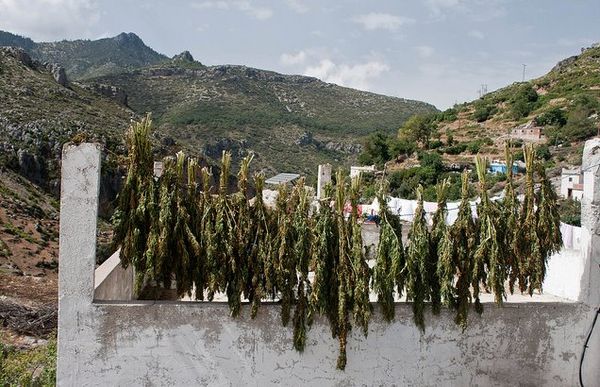
------------



Comments from our readers
There are no comments yet. Would you like to be the first?
Leave a comment!Did you like this post?
Your opinion about our seeds is very important to us and can help other users a lot (your email address won't be made public).